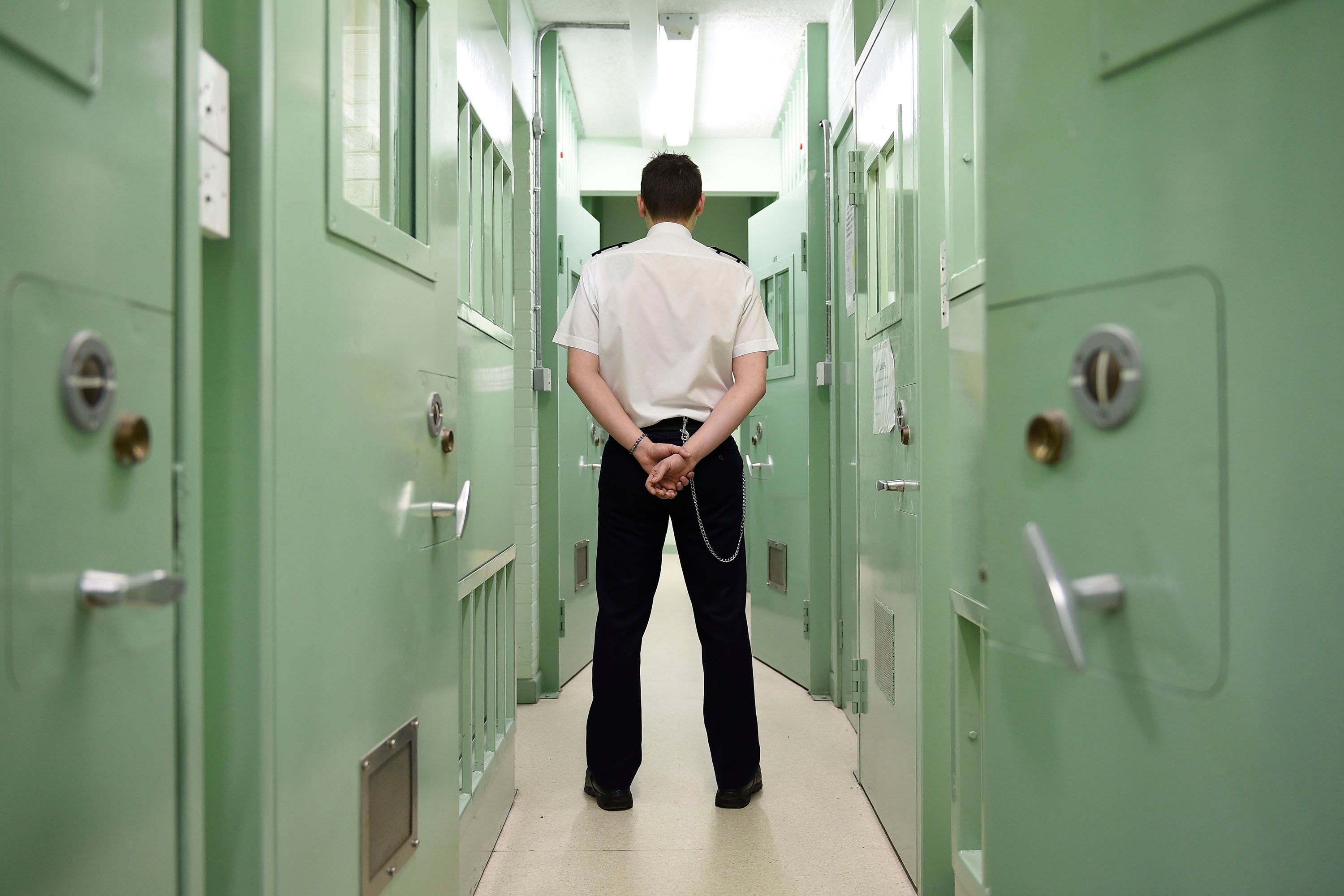Prisons ‘time bomb’ warning as officers say they are unsafe, understaffed and underpaid
Survey finds 43 per cent of prison officers in England and Wales plan to leave

Your support helps us to tell the story
This election is still a dead heat, according to most polls. In a fight with such wafer-thin margins, we need reporters on the ground talking to the people Trump and Harris are courting. Your support allows us to keep sending journalists to the story.
The Independent is trusted by 27 million Americans from across the entire political spectrum every month. Unlike many other quality news outlets, we choose not to lock you out of our reporting and analysis with paywalls. But quality journalism must still be paid for.
Help us keep bring these critical stories to light. Your support makes all the difference.
The government is sitting on a prisons “time bomb” as officers say they are unsafe, understaffed and underpaid, it has been warned.
A survey by parliament’s Justice Committee suggested staff are preparing to leave in droves amid record overcrowding in Britain’s jails.
Half of officers said they do not feel safe at work, with three-quarters having suffered recent abuse or assaults, and 43 per cent are planning to leave within five years.
Meanwhile, more than 80 per cent of the prison officers surveyed reported low morale and nine in 10 said their wages were too low for the responsibilities of their job.
Sir Bob Neill, chair of the Justice Committee, called the results “shocking”, adding: “This is a shocking survey. We’ve known as a committee for some time that there are severe staff shortages in prisons and that many prison officers are unhappy with their lot. They don’t feel they can carry out vital rehabilitation work with prisoners.
“But when I learn from this survey that fully half of our prison staff do not feel safe at work, that is still deeply concerning.”
The Conservative MP said the position was “not acceptable”, warning: “The government risks failing in its duty of care to prison staff and prisoners alike. We are sitting on a potential time bomb. It must be defused”.
The research was conducted as part of a wider inquiry into the staffing of prisons, which has faced long-standing problems with recruitment and retention.
Almost 85 per cent of officers said there were not enough staff in the jail where they worked to “engage in purposeful activity” with inmates, such as rehabilitation programmes and education.
Many reported abuse by prisoners, as well as bullying from colleagues, amid widespread low morale.
Steve Gillan, general secretary of the Prison Officers’ Association, said the survey should be a “wake-up call”.
He said that with prison officers being barred from striking, they “deserve to be treated better in the workplace”, adding: “We are calling for a root and branch review of the prison service along with the criminal justice system.”
Almost three-quarters of prison officers said they had been verbally abused by inmates in the previous three months, while over a third reported mental abuse and around a quarter said they had been physically attacked.
A smaller number of prison officers reported harassment, bullying and sexual abuse by inmates, while almost 40 per cent said they had been bullied, abused or harassed by colleagues.
Pia Sinha, chief executive of the Prison Reform Trust, said jails remain unsafe for too many staff and prisoners.
“If staff do not feel safe and secure, prisoners are unlikely to either,” she added. “Current high levels of staff turnover exacerbate the problem. Part of the solution lies in ensuring staff are properly supported by capable and committed prison leaders.”
The Howard League for Penal Reform said the survey should compel the government to reverse plans to build more prisons, following years of increasing inmate numbers because of court backlogs, sentence increases and parole changes.
Director of campaigns Andrew Neilson added: “Prisons are unhealthy places, and the grim conditions affect not only people who live in them, but also people who work in them.
“As overcrowded and under-resourced prisons are asked to do more with less, poorly-paid and demoralised staff are being forced to work under intolerable strain.
“Positive relationships between people living and working in prison are crucial for achieving safer conditions behind bars and creating a respectful and purposeful environment that leads to less crime.”
The Justice Committee received responses from 6,582 prison staff between 10 February and 6 March for the survey, which was advertised internally by the Ministry of Justice and by the prison officers’ trade union, the Prison Officers Association.
A Prison Service spokesperson said: “Our hardworking frontline staff work day-in, day-out, to rehabilitate offenders and protect the public - and it is vital they have the right tools and equipment to keep them safe.
“That’s why we’re further improving safety in our jails by investing in incapacitant spray and body-worn cameras, as well as x-ray body scanners to keep out the dangerous contraband that fuels violence behind bars. We’re also boosting training on the job and prison officer pay to help us hire and retain the best people.”
Subscribe to Independent Premium to bookmark this article
Want to bookmark your favourite articles and stories to read or reference later? Start your Independent Premium subscription today.



Join our commenting forum
Join thought-provoking conversations, follow other Independent readers and see their replies
Comments